Mod Description
What is it? Does any smart have one? Do we need one?Mod Details
PremiumNo Difficulty



 Mod ID907
Creditevilution
Cost££700
For
Mod ID907
Creditevilution
Cost££700
For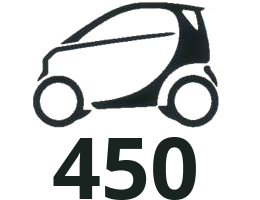
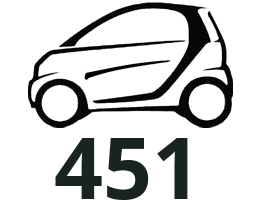
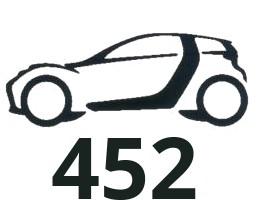
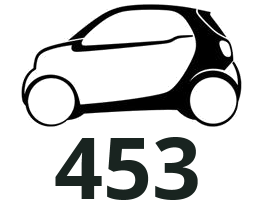
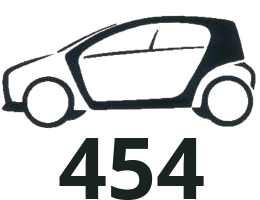 Linkhttps://www.evilution.co.uk/mod/limited-slip-differential.htm Copy to Clipboard
Linkhttps://www.evilution.co.uk/mod/limited-slip-differential.htm Copy to ClipboardWhat Is A Limited Slip Differential?
Woah hang on, back up a bit. Before it get’s complicated, we need to know about standard differentials.
OK, What Is A Differential?
It’s a bunch of cogs that help you go around corners, check out the neat animated GIF I made.

OK, so when a car corners, all 4 wheels rotate at 4 separate speeds. In a right hand bend, the front left wheel will be moving fastest as it’s travelling along a wider curve. Then it’s the rear left, then front right and finally the rear right spinning slowest.

On rear wheel drive cars like the Fortwo and the Roadster, the front wheels are no problem. They have their own separate stub axles so they just rotate independently as the car is pushed along. The back wheels are very different. They have to both be driven by the engine by a single clutch but the have to be able to be powered at varying speeds.
This is where the differential comes in. It consists of 6 gears (usually) that takes the power from the engine and distributes it to 2 separate drive shafts that can draw power from the differential but run at different speeds.
In the picture below, the power from the engine comes in from the shaft in the lower right. This drives the ring gear which is the largest cog. Exit top right and bottom left are the drive shafts. On the end of each drive shaft is a side gear and these are joined to each other by planetary gears (small gears top and bottom). These planetary gears are connected to the inside of the ring gear and will move with that.

When the car is going in a straight line, the engine spins the ring gear which moves the planetary gears. The planetary gears won’t actually rotate but they will orbit the side gears essentially locking both drive shafts together.
When cornering, the ring gear rotates being powered by the engine, the planetary gears spin and rotate so that power reaches both drive shafts but they can move at different speeds. Have a look at the video, keep an eye on the speed of the end gears and the planetary gears. It’s these that will tell you what is actually going on.
Neat Design, Any Drawbacks?
Actually yes. The main problem is the distribution of power through the differential. The way it works is that more power is given to the outside (faster moving) wheel to allow it to move faster. In normal operation use this isn’t an issue. However, the power from the engine will follow the path of least resistance which brings up a big problem when you have traction problems.
If you had the car sitting with 1 rear wheel on ice and the other rear wheel on perfectly good road, because there is less resistance on the icy side the engine will transmit all of the power to the wheel with no traction. This means the car will go nowhere. The wheel on the ice will spin and slip and the wheel on the road will receive no power at all. Obviously this means there is a possibility that your car could go nowhere. So getting back to the original question…
What Is A Limited Slip Differential?
Essentially, it is exactly the same as above but it limits the amount that 1 of the wheels can slip. This means that even when 1 wheel is spinning on ice, a portion of the power is always going to be sent to the opposite wheel. This means that the wheel with the good traction will be able to push the car to a point where traction is regained on the other side.
How Does It Limit The Slip?
There are 4 ways to do it. Viscous, Hydraulic, Mechanical and Electronic. If you really want to learn more, I’d seriously suggest reading the Wikipedia article. They either use more cogs, separate clutches, a viscous fluid or apply the brake to the spinning wheel.
The electronic limited slip differential is the most simple system. When 1 wheel spins more than a certain percentage faster than the wheel on the opposite side, the car automatically adds a bit of brake on the spinning side, this increases the resistance on that side so more power is sent to the opposite wheel.
Where Are Limited Slip Differentials Used?
Generally they are used in high powered cars with front engine and rear wheel drive. They are also used in powerful cars with front engine and front wheel drive. In front wheel drive applications it is so the power can be put down more effectively when pulling away around a bend. In rear wheel drive front engine car applications the driven wheels doesn’t have the weight of the engine over them so they are more prone to spinning when pulling away when driving like an idiot.
So, in general, limited slips differentials are used in cars with powerful engines so the power can be put onto the road through the wheels instead of lighting up 1 wheel each time you pull away like a mad man.
What About Drift Cars?
*Sigh*, yes, and drift cars. The whole point of these cars is to get both rear wheels to spin and break traction enough to travel sideways yet give enough traction to provide forward movement around the bend. If a drift car didn’t have a limited slip differential it would just spin up 1 wheel and the other would just roll unpowered so wouldn’t break traction as easily unless it had a REALLY powerful engine and could get the traction to break before the corner.
Do I Need One In My Smart?
Since I have been on the smart scene, I have heard about 5 requests for a limited slip differential on a smart through the forums. I’m guessing that most of them weren’t really aware of what they really do and just wanted one because the they are in M series BMW’s and drift cars. On each occasion either someone says they can get one made but it’ll cost a shit-load of cash or they say to ask Quaife if they can make one. Quaife are the well known name in LSD’s.
Needless to say, it can be done. Depending who you talk to at Quaife, they will make you one for about £700 as long as you have 29 other friends who also want one. (I have heard higher prices for lower quantities).
In the long run however, it is a pointless endevour and I would tell you to save your money.
Why?
Several reasons.
Firstly, the smart isn’t a powerful car. Even with loads of work and the mightiest of remaps the power output is not requiring of a limited slip set up. There are Fiat 500s out there with more power as standard than a modified smart and even the best standard Roadster is matched by a Fiat Panda.
Secondly, the engine sits over the wheels giving them more traction as standard and making them less likely to spin up out of control due to the extra weight.
Thirdly, the 700cc smart fortwo and Roadster already sort of have a limited slip differential.
What The Hell Are You Talking About?
Let’s look at a previous paragraph from this page.
“The electronic limited slip differential is the most simple system. When 1 wheel spins more than a certain percentage faster than the wheel on the opposite side, the car automatically adds a bit of brake on the spinning side, this increases the resistance on that side so more power is sent to the opposite wheel.”
That’s pretty much what ESP does. The electronics sense the wheel rotation speed and if 1 wheel spins too fast then the ECU will automatically dab the brake on that specific wheel to slow it down to allow it to gain traction. The act of dabbing the brake on 1 side allows the power that was being wasted to power a slipping wheel to be transferred more to the side that has better traction.
It really is the lowest of the low version of a limited slip differential and it can feel quite intrusive when it kicks in but the smart is not powerful and it’s not a drift car so it simply doesn’t need any more than ESP.
Wow, Thanks Evil, You Saved Me £700
No worries, make sure you sign up for a year’s subscription to say thanks and you can spend the remaining £675 on that Japanese love pillow and still have enough left to bolster your extensive porn DVD collection. Bonus!


